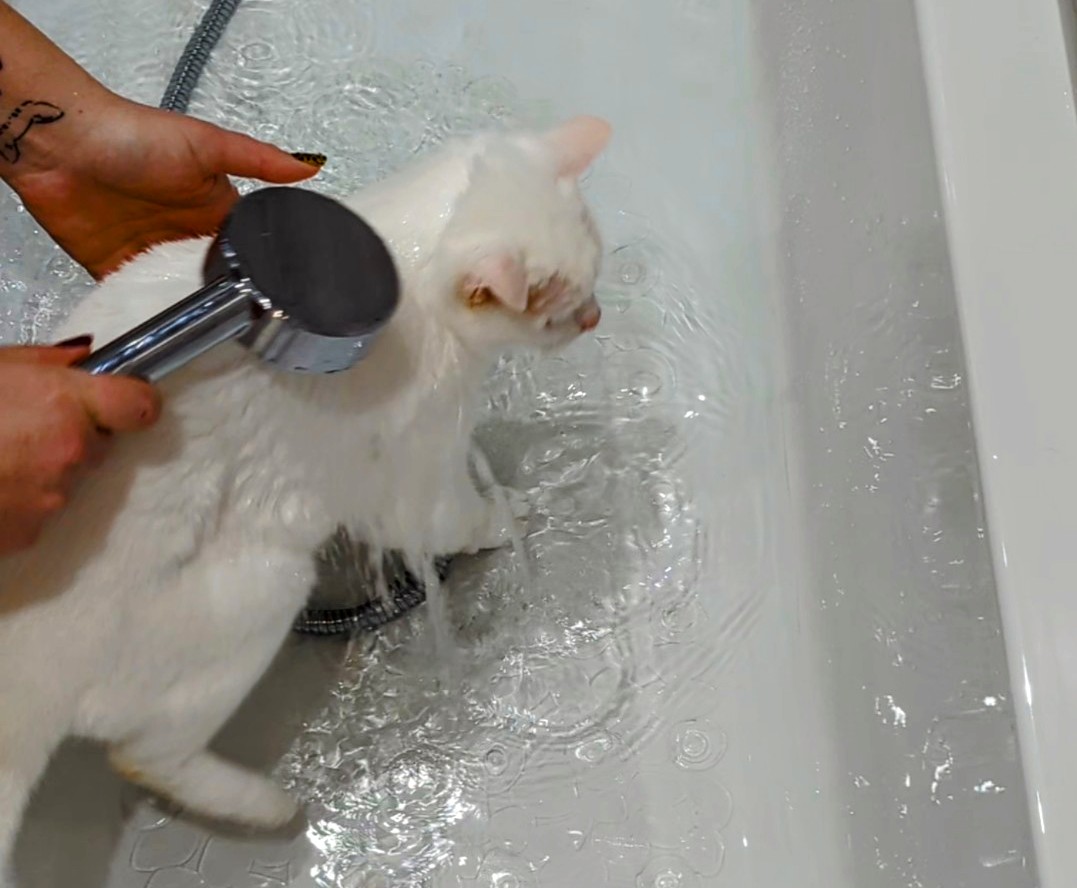Hi, I’m Dr. Karyn! Read my introduction to learn more about me and meet my five hilarious cats: Clutch, Cyril, Alex, Zelda, and Zazzles.
Cats are known to be fastidious creatures, often devoting hours of their day to grooming, so it’s not often that we have to give them a bath. However, sometimes this unfortunate task cannot be avoided, and while there are some cats who actually enjoy getting wet, the majority would prefer to stay well clear of the bathtub or shower. Grime or grease show up more easily on Clutch’s snow-white fur, so he does receive the occasional bath, which, like most things, he takes in his stride with very little protest, making him an ideal model for a demonstration. Zelda, on the other hand, is a lot more flighty and doesn’t even like being brushed, so I was less enthusiastic about taking her for a dip, but the cat litter stuck to her long furry trousers has put her in the line of bathtime fire.
This does mean that I can show you how to bathe a cat, plus how to bathe a cat that is likely to put up a lot of resistance.
Preparation is Key
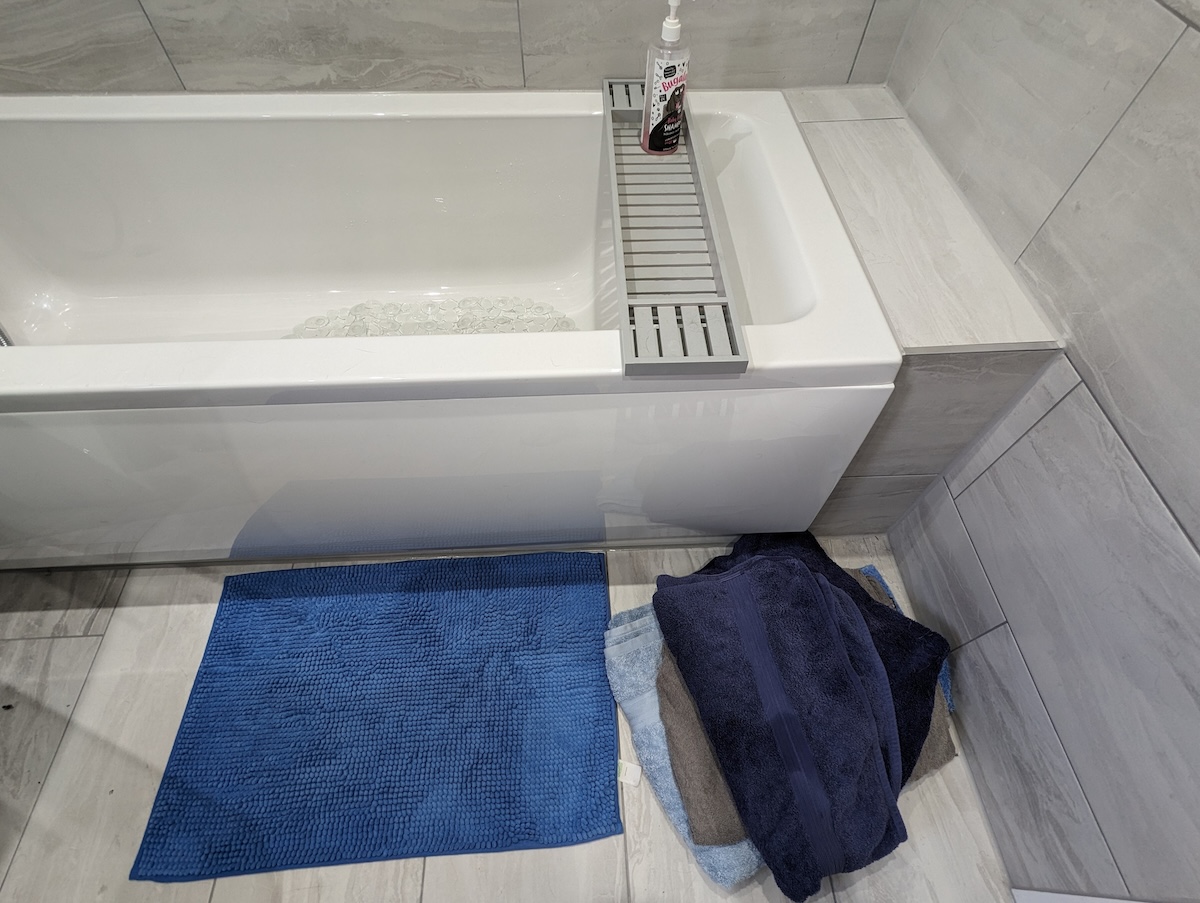
Assume that your bathing session is going to be a disaster – by expecting the worst, you will hopefully be prepared for all eventualities. I have found that cats settle more quickly if you place them into a tub of water and get as much of them wet as possible – if they think they can escape without getting soaked, they will fight much harder to get away, so choose a deep sink or bathtub for your scene.
You should choose a small, enclosed room, with minimal jumping or hiding spots, so the bathroom tends to be the obvious choice. Move any bottles, jars, or other objects from shelves and surfaces where they could be knocked over in the event of a mad scramble, and make sure the window is secure.
I recommend trimming your cat’s claws before their bath to help minimize the damage they may inflict if the situation turns ugly. Make sure you have everything you’ll need within reach of the basin/tub, but you shouldn’t need much in the way of supplies.
- a non-slip mat, towel, or bath mat to place in the bottom of the tub – the slippery surface can be almost as distressing as the water to your cat.
- cat-friendly shampoo – eg. Hepper Oatmeal Shampoo
- 2-3 large bath towels
Place one towel on the floor to soak up the water that will spill.
Have a ‘drying room’ ready for your cat to chill out in at the end – make sure it’s warm and free of draughts.
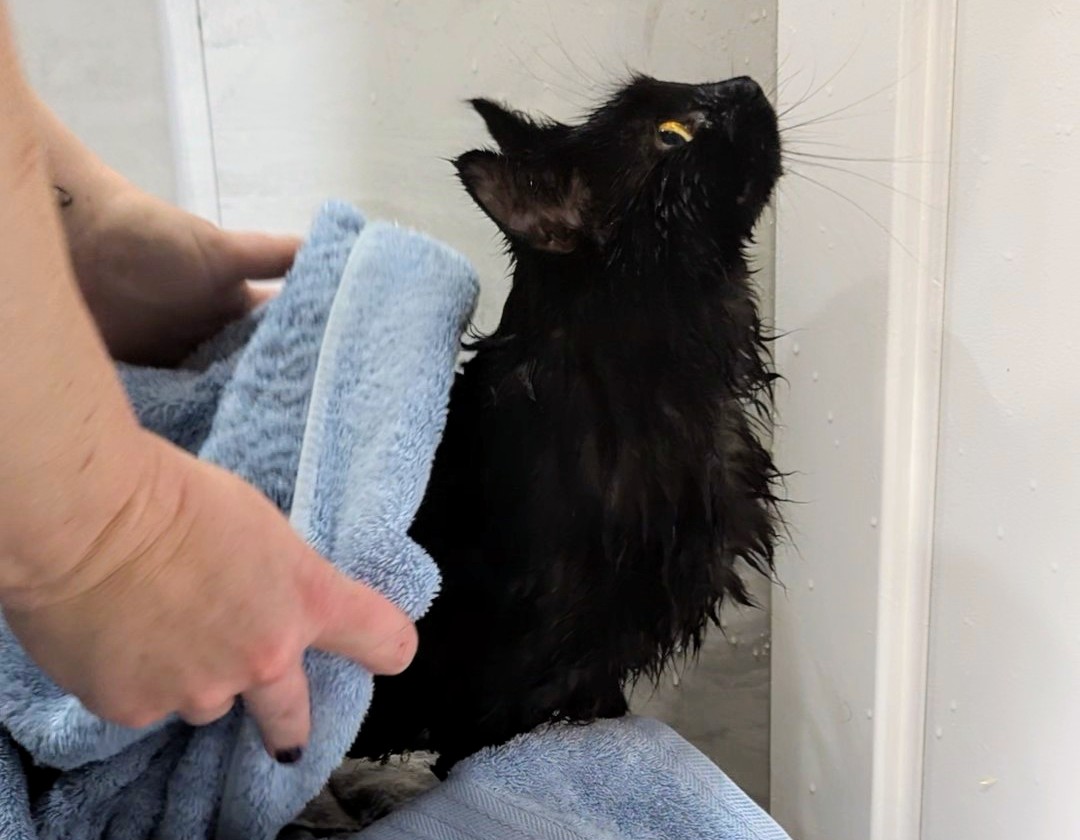
Get The Water Temperature Right
Whether you’re using a hose attachment, faucet, or jug, it is vital to get the water temperature right. Remember that a cat’s body temperature is slightly higher than ours, so the water should feel warm, but not hot. Make sure you run the water long enough to know it won’t get hotter during the bath.
If you’re using a hose-type attachment, be careful. While Clutch had no problem with the hose, Zelda’s initial struggles caused a fumble that resulted in me squirting her with the shower hose. This did not enhance her experience!
Fill the tub so that it is deep enough to reach halfway up your cat’s body. This will allow you to immerse most of them in the water right away.
Prepare to Get Wet
Once you have checked you have everything you need, it’s go time.
Pick up your cat with confident hands, but do not cuddle them tightly against you. When they spot the water, they are likely to try to escape, usually by clambering up and over you. Use the secure hold I showed you in the How To Safely Restrain A Cat video; this will allow you to more easily maneuver them into the water without having to detach their claws from your clothes or skin!
Place them swiftly, but gently, into the water, being careful to keep their head and ears dry. This is when the worst of the struggling will occur, so be wary of teeth and claws, but try to maintain a confident, firm hold. Immobilizing the shoulders and guiding the hind legs to the towel or mat in the tub should enable you to keep them in the water.
Keep Everyone Safe
The aim here is to show your cat that you ‘mean business’ by being confident, without using excessive force – friendly but firm. If they think they can escape, they will, but if they believe you are in control, they are less likely to fight.
Although I try not to let my cats scramble free, if they become extremely stressed, panicked, or aggressive, do not persevere. No bath is worth emotional or physical trauma for either of you.
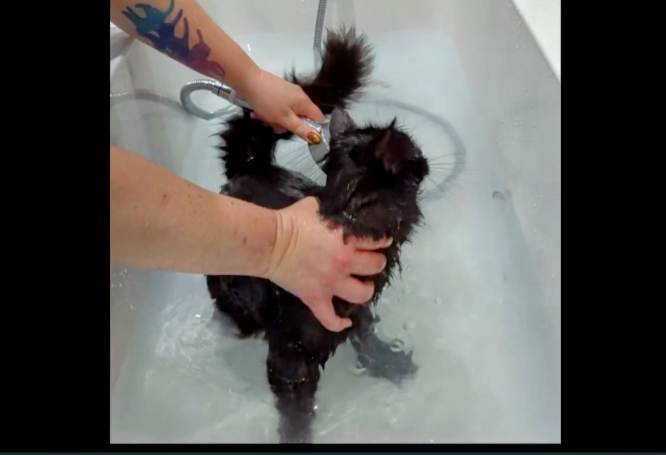
The Easy Part
Once your cat has (hopefully) calmed down a bit and accepted that this bath is going to happen, use a jug or shower hose to wet them from the neck down, and lather up some shampoo. You can use your hand or a cloth to wipe over their face, but make sure no shampoo gets in their eyes, and no water goes into the ears.
Make sure you rinse them thoroughly and start to drain the water from the tub. Try to squeeze excess water from their fur, and either lift them onto the waiting towel, or bring the towel to them. Give them a vigorous drying off, a huge amount of praise, and take them to a warm room to recover.
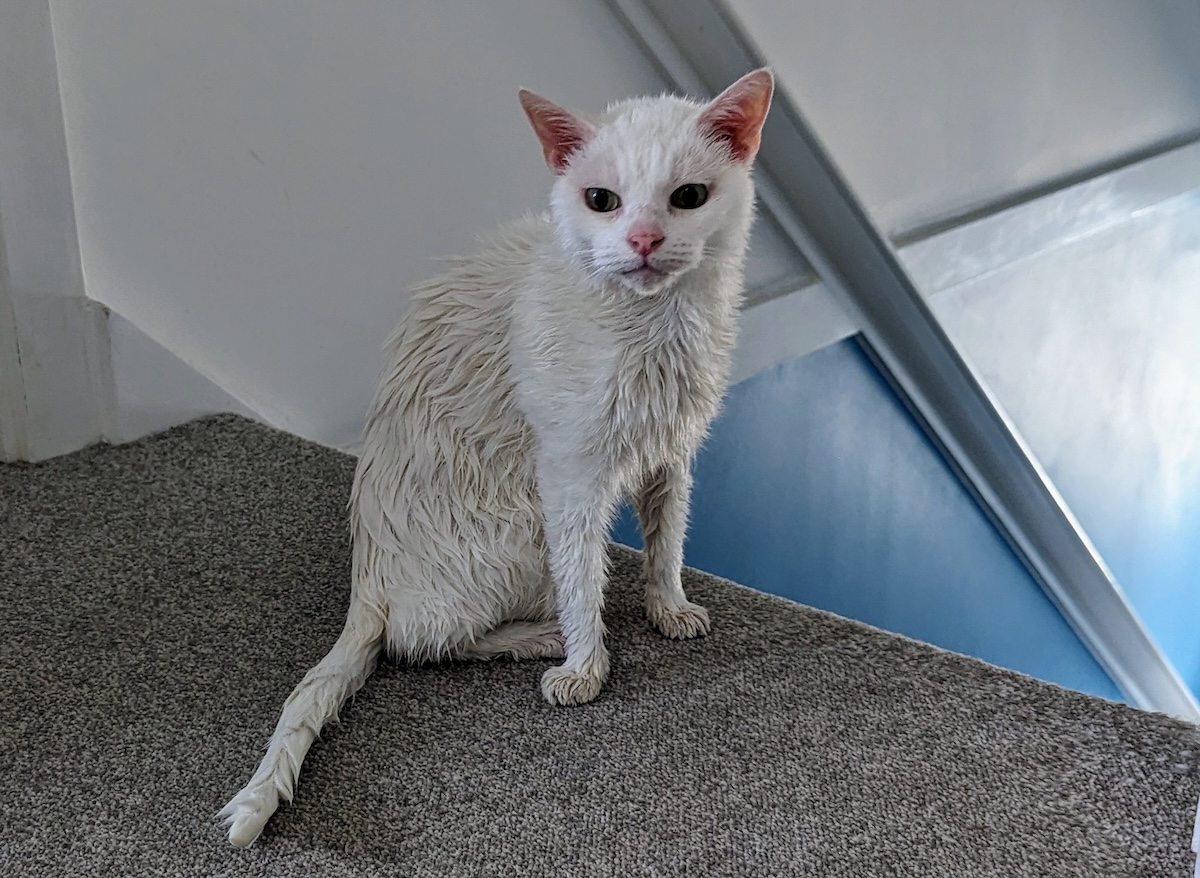
They Will Forgive You
Every now and then, we all have to do things that our cats aren’t going to like, but if you’re patient, firm, and friendly, they will get over the trauma of getting wet. What causes more upset to our cats is when we shout, panic, get angry, or upset – this is what they will remember, so this is what you must avoid.
You will see in my video that Zelda did not have a great time, but in the end, she calmed down a lot, and I can’t tell you with complete honesty that she was on my lap later that night.
So be confident, be safe, and be prepared to get wet!

